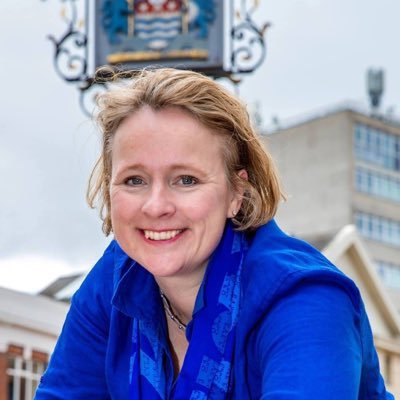Louise Haigh – 2020 Speech on Child Protection
Below is the text of the speech made by Louise Haigh, the Labour MP for Sheffield Heeley, in the House of Commons on 27 February 2020.
This report is utterly damning and should shame us. It finds that the current system of protecting the most vulnerable children in our country is unsustainable, that the approach of police forces is not proactive enough, and that vulnerable children are simply not being identified or protected, with resources and the failures and variability of partnership working being identified as key concerns. The report comes on the same day as a leaked Government report into the drug trade, which shows that vulnerable children are falling into the grip of gangs at an unprecedented rate. Those are two sides of the same crisis that is reaching into every town and community across the country.
The Children’s Commissioner has been sounding the alarm for several years now. She found that 2.3 million children are living with risk because of their vulnerable backgrounds, and as many as 1.6 million of those children have patchy or no statutory support whatsoever. After a decade in which the safety net that vulnerable children rely on—Sure Start, family support services, speech and language therapy, behavioural support, social services and probation—has been picked away, it is becoming far too easy for the most vulnerable to be preyed upon by serious organised criminals.
It is thoroughly unacceptable that the police are not recognising or evaluating risks to children well enough, as the report has found. Children living in care are not being properly protected. Schools are becoming too eager to expel and off roll. Pupil referral units are becoming recruiting grounds for vicious criminals. The total lack of both mental health and residential care beds has led to too many children being inappropriately detained or being ferried around the country in the backs of police cars. This is a whole-system failure, and the consequences for children and families are stark.
Over £880 million has already been lost from children’s and youth services since 2010. The flagship early intervention fund announced by the former Home Secretary last spring was supposed to make funding available for critical support to steer young people away from serious violence, but answers to parliamentary questions have revealed that more than 60% of bids from police and crime commissioners for these projects, including 24 in London alone and one to tackle the vicious exploitation known as county lines, have been rejected. The former Home Secretary had previously promised to do everything in his power to tackle county lines exploitation and the vulnerable children swept up in it, but he then quietly rejected a £1.3 million bid from West Mercia, Staffordshire and Warwickshire to fund a project designed to tackle exactly that. In total, the Government are funding only 29 diversion projects nationwide.
If this report is not the catalyst for the Government to get serious, nothing will be. We know from the Prime Minister’s short time in office that he goes missing when things get tough and there are difficult questions to be answered. When it comes to protecting the most vulnerable children, we simply cannot afford for him to do so again.
Turning specifically to the report’s findings, the Minister knows as well as I do that data sharing comes up repeatedly in serious case reviews and in response to child protection. Despite specific amendments to the Data Protection Act 2018 that allow the sharing of data for safeguarding purposes, it remains an issue. What more can we do to break down the organisational and cultural silos that are preventing data sharing and stopping organisations working together to protect children?
With police forces and services facing unsustainable demand, what resources will the Government put in place to tackle that need and properly fund local authority children’s services after £880 million was taken from their budgets? Given that the report praises the approach in Wales to adverse childhood experiences and the collaboration of the four forces there with local services to provide targeted early support, what plans do the Government have to replicate such an approach in England? We have consistently said that implementing a public health approach to meeting that crisis will require leadership from the Prime Minister down. That can be done, but it requires political will to bring together and co-ordinate the agencies, Departments and police forces that can make a difference in identifying and protecting children earlier. Clearly that is happening in some local authority and force areas, but it is far too inconsistent, so will the Prime Minister now convene a taskforce, led from central Government and chaired by him, to bring together the services and identify the support that will have a tangible effect and ensure that the national strategy on child abuse is led from the heart of No. 10?

